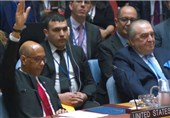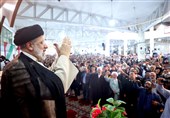Concerns Arise on Saudi Decision to Execute 14 Protestors
TEHRAN (Tasnim) – Human rights organizations have voiced concern about Saudi Arabia’s decision to put to death 14 citizens, including a disabled man and two juveniles, on protest-related charges.
Reprieve, a British non-profit organization of lawyers and investigators defending human rights, has voiced serious concern about death sentences for 14 Saudi people, Arabic-language al-Ahed news website reported.
On the first page of its website, Retrieve has drawn up a petition titled ‘Stop Imminent Executions in Saudi Arabia’ to protest capital punishment for the Saudi men.
"14 people sentenced to death on protest charges in Saudi Arabia have been prepared for execution and could face beheading within hours. They include a disabled man and two sentenced to death as juveniles,” the petition reads.
On June 6, Amnesty International and Human Rights Watch urged the Riyadh regime to immediately quash the death sentences of 14 members of the Shiite community for protest-related crimes.
The Court of Appeal of the notorious Specialized Criminal Court upheld the sentences in May 2017, after they were handed down a year ago on June 1, 2016, following a grossly unfair trial of 24 Saudi Shiite citizens, according to Human Rights Watch.
The Specialized Criminal Court is Saudi Arabia’s counterterrorism tribunal.
On May 25, 2017, the families of three of the defendants learned in a phone call that the Court of Appeal of the Specialized Criminal Court had upheld the death sentences against their relatives. The family members of another two defendants subsequently called the court, on May 28, and were informed that the sentences for their relatives and for the whole group of 14 had been upheld on appeal. The exact date of the appeal court’s decision is unknown.
Court documents show that all defendants, including the 14 sentenced to death, were held in pretrial detention for more than two years before their trial began. During that time, most were in solitary confinement, and Saudi Arabian authorities denied them access to their families and lawyers while they interrogated them.






